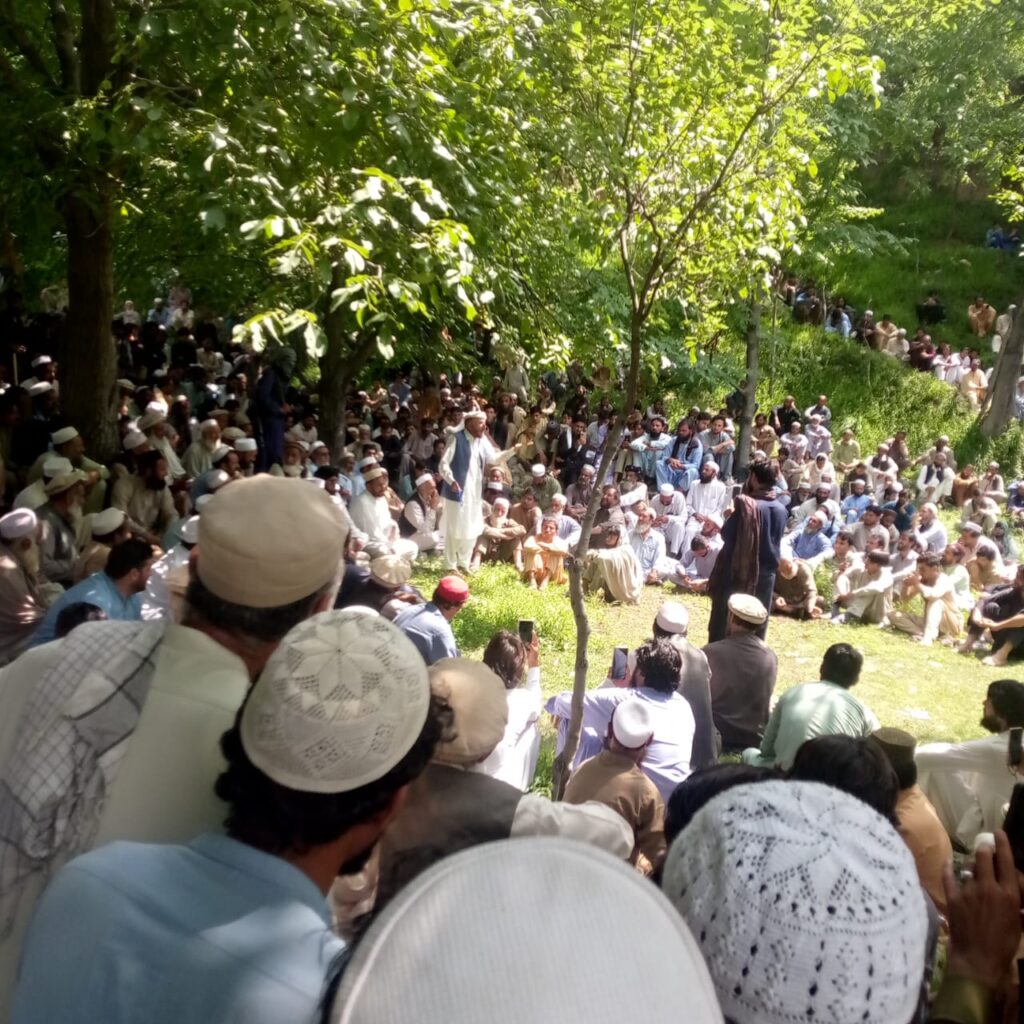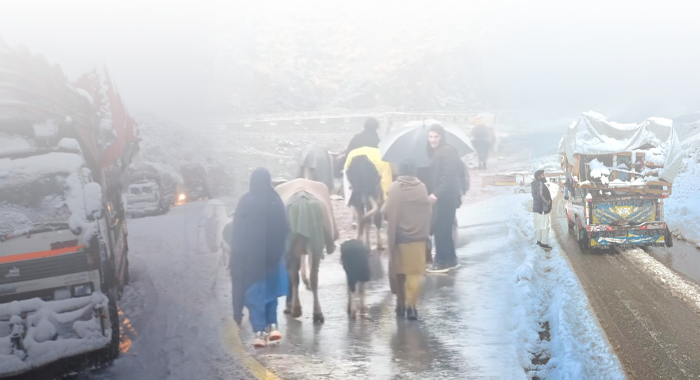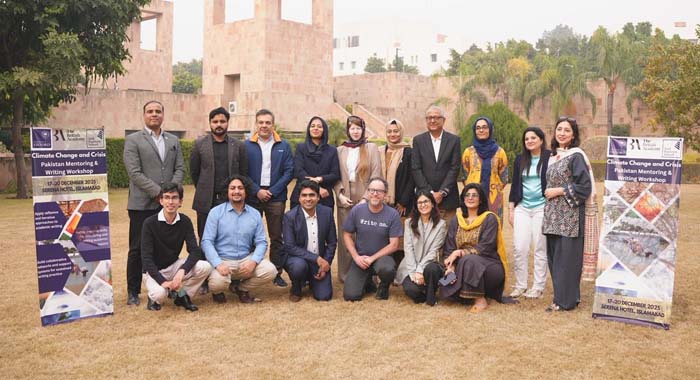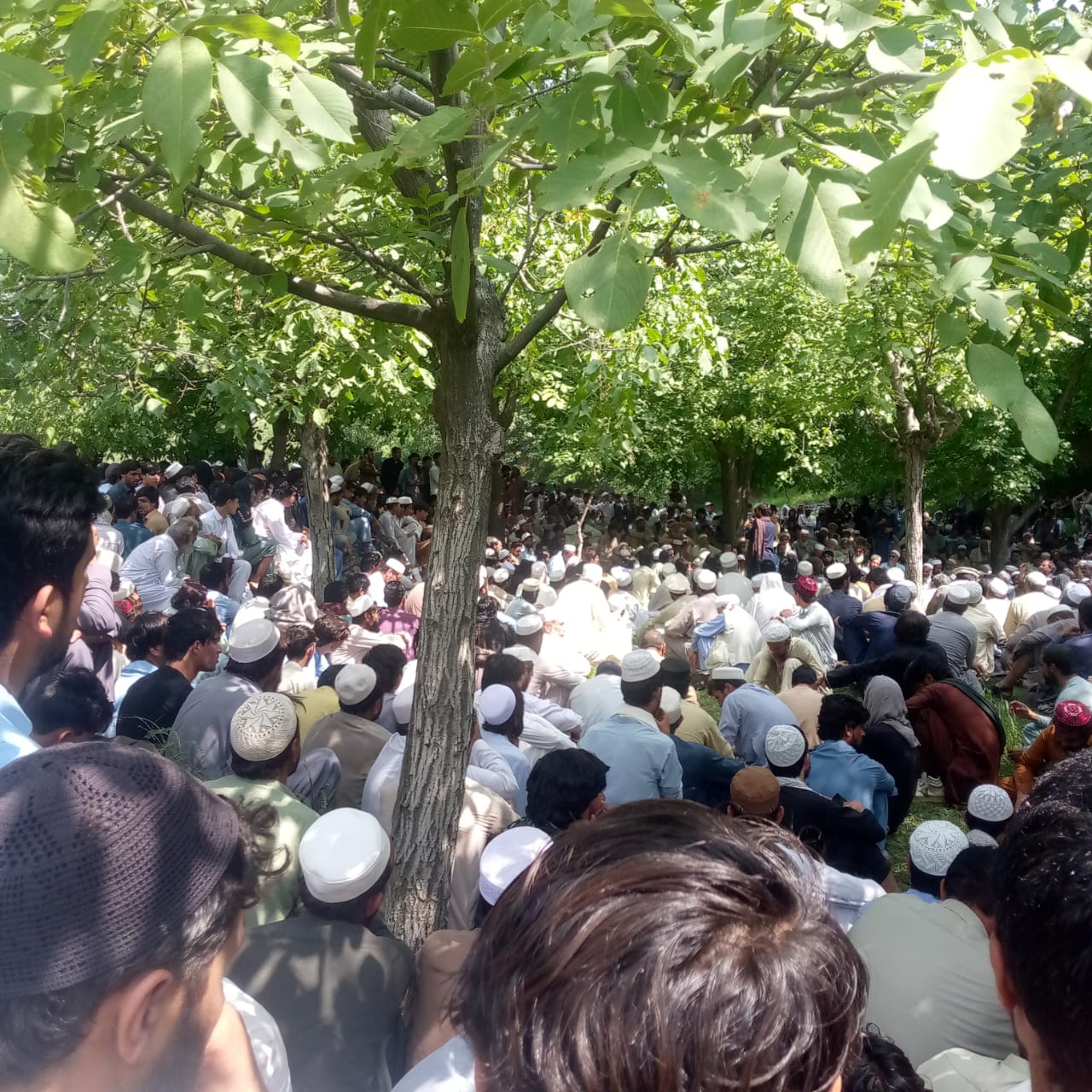By Muhammad Younas :
Tirah Valley, Khyber District — In the heart of a valley long scarred by conflict, a rare and powerful movement for peace has taken a hopeful pause. Thousands of residents of Tirah, united in a peaceful protest against militancy, have temporarily suspended their sit-in after tribal elders reached a preliminary understanding with local members of the banned Tehrik-i-Taliban Pakistan (TTP).

The agreement, announced after intense but nonviolent dialogue, came with a request from the TTP for time to consult its central leadership—reportedly based in Afghanistan—on the possibility of a peaceful exit from the region. A formal response to the elders’ demands is expected by August 5.
The protest, which began amid growing fears of militant resurgence, saw more than 8,000 men and youth—some barefoot, others carrying the Holy Quran above their heads—gather under the leadership of Zahir Shah Afridi, a respected tribal elder. They came not with weapons, but with resolve. Not with rage, but with bread, water, jaggery—and a deep yearning for peace.
From seminary students to shepherds, from schoolchildren to village elders, the people of Tirah Valley made their message clear: enough bloodshed, enough fear. Their peaceful procession stretched toward the Bhuttan area—long a site associated with militant presence—where they appealed to fighters to hear their pleas, to remember the suffering of families, and to walk away without more violence.
“This is not a protest of anger, but of dignity,” one elder said. “We are tired of living in fear. We want our children to grow up with hope, not gunfire.”
Despite limited resources and no outside assistance, the protest remained disciplined and deeply symbolic. The Holy Quran held aloft in thousands of hands became a powerful image of nonviolent defiance, echoing across social media and drawing national attention to this overlooked valley in Khyber District.
Sources close to the talks say the TTP acknowledged receiving written demands but maintained that any decision must come from their Afghanistan-based leadership. August 5 now stands as a pivotal date—not just in the negotiations, but in the hearts of the people who have risked everything to make their voices heard.
As the sun sets over the Tirah mountains, a cautious hope lingers. The people here have known displacement, drone strikes, and destruction. But now, through their peaceful protest, they have found their own voice—grounded not in politics or power, but in humanity.
What happens next may define the region’s future. But for now, the people of Tirah have shown that even in the face of fear, peace can still begin with bread, water—and the Quran held high.



